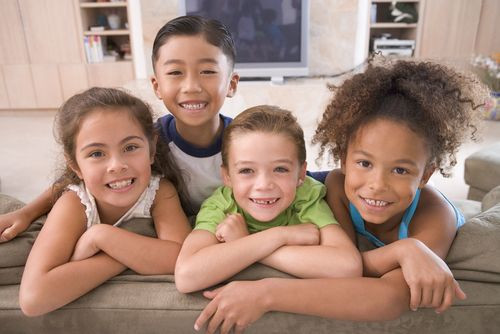That’s Not Fair! Even 6-Year-Olds Understand What Is Just And Will Intervene On Behalf Of Disadvantaged

The statement “life is not fair” causes pain to most adults, so is it any surprise life’s inequity might inspire temper tantrums and screaming fits in children? At a really young age, a new study suggests, children have advanced ideas about fairness, such that they are willingly to pay a personal price to intervene even when they themselves are not personally disadvantaged by an unfair situation.
"This study shows children aren't just going to watch and let unfairness happen, they're going to put their money where their mouth is, in a sense,” said Dr. Katherine McAuliffe, a post-doctoral fellow at Yale. However, McAuliffe and her colleagues also discovered children’s reactions to unfairness may be biased in favor of those in their own group — in this case, children on the same team.
To understand how kids understand ideas of justice and fairness, McAuliffe and her co-researchers recruited 64 children, ages 6 and 8, to play a game with candy. First, though, the researchers established a group identity for each child. Rather than using pre-existing groups like hair color or race — qualities children may be aware of already — the researchers assigned each child to either the "blue team" or the “yellow team.” Next, the researchers reinforced group identity; members of the yellow team, for instance, wore yellow hats while drawing pictures using only their special color.
At this point, the games began with each child asked to play a third-party judge of another child who had divided up candies on the previous day. (To show how this transaction had occurred, the children were represented only by paper bags marked either as a blue or yellow team members.) If the child sitting in judgment approved of how the other divided up the candy, the researchers said all of the children would receive the candy. If the judge disapproved, however, all of the children had to sacrifice one of their candies, while another two players had to throw away all of theirs.
“We found that by age 6, punishment was already biased: Selfish resource allocations received more punishment when they were proposed by out-group members and when they disadvantaged in-group members,” wrote the authors in the study. Yet, they also found bias in punishment partially decreased between the ages of 6 and 8. Although 8-year-olds punished selfish out-group members more harshly, they were equally likely to punish on behalf of in-group and out-group members who had been treated unfairly.
Overall, the 8-year-olds were “less biased in the sense that they felt it was equally bad to treat people selfishly, regardless of what group they were in,” McAuliffe said. “They started to see out-group members as legitimate victims, or just as legitimate as in-group members." Going forward, McAuliffe and Warneken will explore whether the same trends hold true in Uganda and Vanuatu. McAuliffe wonders whether fairness norms are “specific to Western culture or are they more general norms that children learn around the world?" Certainly, this is a question worth answering.
Source: Jordan JJ, McAuliffe K, Warneken F. Development of in-group favoritism in children’s third-party punishment of selfishness. Proceedings of the National Academy of Sciences. 2014.



























